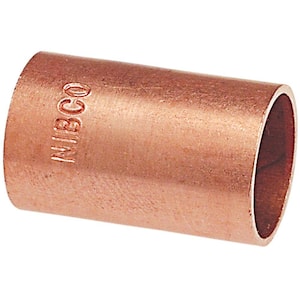Discovering the Diverse Applications of Copper Products in Modern Industries
Copper products have established themselves as indispensable elements across a myriad of modern-day sectors, mostly due to their exceptional conductivity, malleability, and resistance to deterioration. From boosting the effectiveness of electrical systems to playing an important function in renewable resource technologies, the convenience of copper appears. Its recyclability positions it as a sustainable option in production and electronics. As sectors increasingly focus on development and sustainability, the diverse applications of copper call for a closer evaluation, particularly concerning their potential influence on future technical developments and ecological methods.
Electric Applications of Copper
Copper is a necessary material in the electrical market, representing around 60% of the total demand for non-ferrous steels globally - Copper Products. Its remarkable electrical conductivity, which is nearly twice that of aluminum, makes it the recommended choice for a wide variety of electrical applications. From circuitry systems in commercial and residential buildings to high-voltage power transmission lines, copper ensures effectiveness and integrity in electrical power distribution
In enhancement to wiring, copper is integral to the manufacturing of electrical elements such as electric motors, transformers, and generators. These parts utilize copper's thermal conductivity and pliability, necessary for heat dissipation and reliable efficiency. Moreover, copper's resistance to corrosion boosts the life expectancy and longevity of electrical systems, making it an economical solution in the long-term.
The growth of sustainable energy sources, such as solar and wind power, has even more raised the need for copper in electrical applications. As industries shift towards sustainable power remedies, copper's role comes to be also more essential. On the whole, the adaptability and performance qualities of copper solidify its condition as a keystone product within the electrical field, driving innovation and effectiveness throughout different applications.
Plumbing and Piping Solutions
In modern-day pipes systems, the choice of materials dramatically affects both capability and durability. Copper has emerged as a recommended alternative because of its unique residential or commercial properties, consisting of rust resistance and antimicrobial attributes. These qualities make certain that copper piping stays risk-free and sturdy for transferring potable water, an important factor to consider in household and commercial applications.
One of the key benefits of copper in pipes is its ability to withstand heats and stress, making it suitable for a variety of applications, from warm water systems to heating and cooling networks. Furthermore, copper's adaptability enables for simpler installment in intricate piping layouts, minimizing the danger of failures and leakages.
An additional noteworthy benefit is copper's long lifespan, frequently going beyond 50 years with correct upkeep. This long life not only decreases replacement prices however likewise adds to sustainable techniques by lowering waste. Copper's recyclability lines up with modern ecological requirements, promoting a circular economic climate within the pipes market.
Copper in Renewable Resource
The adaptability of copper prolongs beyond plumbing applications, playing a crucial duty in the renewable resource industry. Its exceptional electric and thermal conductivity makes here it a necessary product in the manufacturing and distribution of sustainable power resources, specifically solar and wind power. visit our website In solar panels, copper is made use of in solar batteries and electrical wiring, promoting reliable energy conversion and transmission. Its resistance to corrosion guarantees resilient efficiency, which is essential for making the most of energy output in time.

Moreover, as the global need for electric automobiles (EVs) rises, copper's duty in battery systems and billing facilities becomes much more considerable. The material's ability to carry out electricity efficiently is essential to the efficiency of EV batteries, boosting array and charging speed.
Copper's Duty in Electronic devices
Electronic devices making depends heavily on copper's exceptional buildings, specifically its high electrical conductivity and thermal effectiveness. These characteristics make copper an optimal selection for a variety of electronic elements, consisting of ports, motherboard, and circuitry. The metal's ability to efficiently send electrical signals ensures minimal power loss, which is important in high-performance digital tools.
Furthermore, copper's thermal conductivity plays a significant role in warm dissipation, securing delicate parts from overheating. This is specifically vital in contemporary electronics, where small designs result in increased warmth generation. Copper is likewise preferred for its pliability and ductility, enabling it to be conveniently shaped into complex styles that fulfill the demands of innovative digital applications.
With the rise of consumer electronic devices, telecoms, and electrical lorries, the need for copper in the electronic devices market Bonuses remains to expand. As developments in technology develop, copper remains essential to achieving greater efficiency and dependability in electronic items. Its recyclability further improves its appeal, as manufacturers look for lasting services without compromising quality. Therefore, copper remains a foundation material in the ever-expanding area of electronic devices.
Innovative Utilizes in Production

One notable application remains in additive manufacturing, where copper-based materials are used in 3D printing processes. This enables for the production of lightweight parts and intricate geometries, particularly in the aerospace and vehicle sectors. In addition, copper's thermal conductivity makes it an optimal choice for warm exchangers, boosting performance in industrial cooling systems.
In addition, the surge of smart manufacturing has seen the incorporation of copper in IoT gadgets, where its conductive capacities sustain sophisticated sensing technologies. In the world of renewable resource, copper is essential in the manufacturing of solar panels and wind generators, facilitating much more efficient power conversion and circulation.
As sectors pursue sustainability and development, copper's adaptability and performance proceed to place it as a crucial material, driving developments in manufacturing and adding to the growth of smarter, extra reliable items.
Verdict
The integral function of copper in eco-friendly power and its important feature in electronics emphasize its relevance in advancing lasting practices. Jointly, these applications highlight copper's important payment to technical development and industrial performance in contemporary society.
From boosting the performance of electric systems to playing an important role in renewable power modern technologies, the flexibility of copper is evident. As markets significantly prioritize development and sustainability, the diverse applications of copper necessitate a closer assessment, especially concerning their potential impact on future ecological methods and technological improvements.
The development of eco-friendly energy sources, such as solar and wind power, has even more raised the demand for copper in electric applications. Generally, the adaptability and efficiency characteristics of copper solidify its status as a cornerstone product within the electric market, driving innovation and effectiveness throughout various applications.
The adaptability of copper expands past plumbing applications, playing an essential function in the eco-friendly power market.